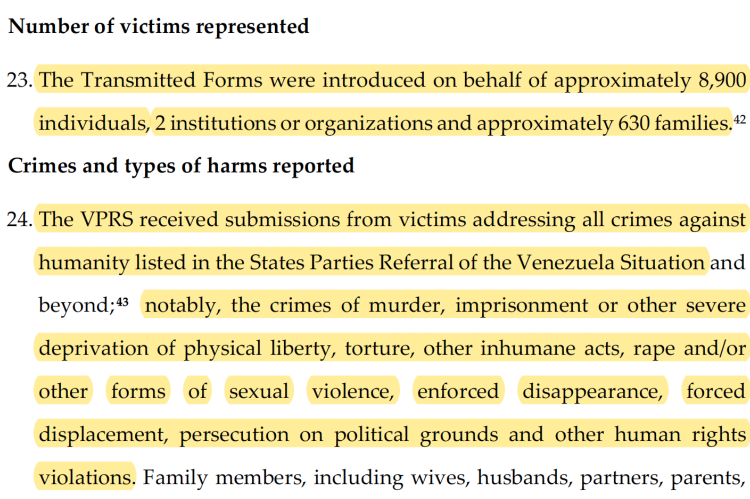There is a tired debate regarding sanctions. Naturally both camps disregard data inconvenient to their stance. Proponents see sanctions as perfect non-violent measures that bring economic hardship to targets. Opponents see it as demonstrably inefficient tools that invariably end up punishing the wrong people. Both sides are simultaneously right and wrong. Cuba is the perfect case study. Years of U.S. sanctions have achieved precisely nothing against the dictators in power. It has done nothing to deter other countries around the world from engaging with an odious regime with a well documented and horrendous record of human rights abuses that spans over six decades. Sanctions have turned Cuban dictators into global icons for radicals. Cuba is extremely popular and successful in diplomatic circles, but the fact that sanctions have failed to dislodge the criminal ruling clique bears no relation, positive or negative, to continued systemic repression against the largely forgotten and altogether innocent majority: the Cuban people.
A similar case applies to chavismo. Long before any sanctions were imposed, the Venezuelan people had been robbed not only of their freedoms and rights, but crucially of nearly all available funds in public coffers. While U.S. sanctions have fostered corruption significantly and have elevated Nicolas Maduro's control to unseen levels, it is ignorant to claim that milllions of Venezuelans have left due to its economic consequences. Sanction-free Maduro managed to terrorise Venezuelans and unite the world in condemnation in 2014, when dozens were killed and hundreds were arrested and tortured. As this site reported then:
"Yesterday, 463 Members of the European Parliament condemned President Maduro's crowd control tactics. Criticism towards his regime cuts across ideological divides, as exemplified by articles on the topic published both by The Times and The Guardian. In unleashing brutality against unarmed civilians, Maduro has made repulsion to his regime universal."
Left to their own devices, these criminals kill, torture, deplete resources and force entire countries into the kind of unbearable hardship that make inflatable rafts and walks across the Americas acceptable propositions. Sanctions can’t be blamed for chavismo, that's entirely on Venezuelans. Sanctions can't be blamed for the sheer inhumanity of castrismo either. So what is a neighbour to do: ignore the plights of innocent victims and carry on business as usual?
A sympathetic stance towards victims ought to be the norm. Indifference, or worse pushing people back to their tormentors, is just inhumane and puts the "good neighbour" in league with the targets of its sanctions. To be effective, sanctions have to go well beyond primary targets. It is effectively a waste of time to place a dictator and his cronies on the SDN list, and then just ignore bankers, lawyers, politicians, PR agents, associates and entire jurisdictions' continued support.
On the topic of U.S. sanctions, the letters of Congresswoman Veronica Escobar and of U.S. Senator Bob Menendez are both right. Neither the blameless victims, nor punitive but very limited economic measures against their oppressors are root causes for mass migration reaching U.S. borders. Unfortunately, President Joe Biden sleepwalked into someone else's mess, but as head of the executive he ought to find solutions that do not encourage further repression. There has to be a consequence, a price to pay for crimes against humanity, even if it is in just one of the world's 195 jurisdictions.
In 2019, Senator Menendez proposed a piece of legislation that would create a task force against chavista kleptocracy. Sadly nothing came of it, however the way to force anything on those of Maduro's ilk is not freeing drug trafficking relatives and other criminal associates, nor is ignoring their actions by implied elimination of sanctions. Spokespersons that have a made a career trading Venezuelan debt, read propping the very culprits of largest exodus in the Americas, certainly aren’t the interlocutors whose opinions should be considered when it comes to formulating solutions.
To increase effectiveness in intended deterrence purposes, sanctions need to be applied to any and all that engage with sanctioned parties, regardless of location and station. The civilised world and everything in it should be off limits to Maduro and his associates, unless meaningful concessions are made. The rules of engagement should be as transactional as prevalent conditions in sanctions-busting engagements with Iran, Russia, China, etc. The ability to access markets, funds / aid, loans, legal representation, frozen assets, etc. should be conditioned on reciprocity, a "give this in order to get that" scenario that's far from complicated. Maduro has shown that he is willing to play that game, as Chevron would attest.
What sanctions will never bring is a change in internal political dynamics. To a huge extent, Maduro is directly responsible for many of Venezuela's current problems, but so are Venezuelans in general, and so is the opposition, which have been co-conspirators in the creation, formation and consolidation of chavismo. Every time chavismo has been against the ropes, the opposition has come to its rescue, including on the topic of sanctions. That surely warrants minute scrutiny before giving a free pass to anyone.
Sanctions can be eliminated today. That won't stop Venezuelans from wanting a better, more peaceful and secure life elsewhere, it won't turn Venezuela into Norway either, and it won't turn chavismo into anything other than what it is: a criminal organization.

